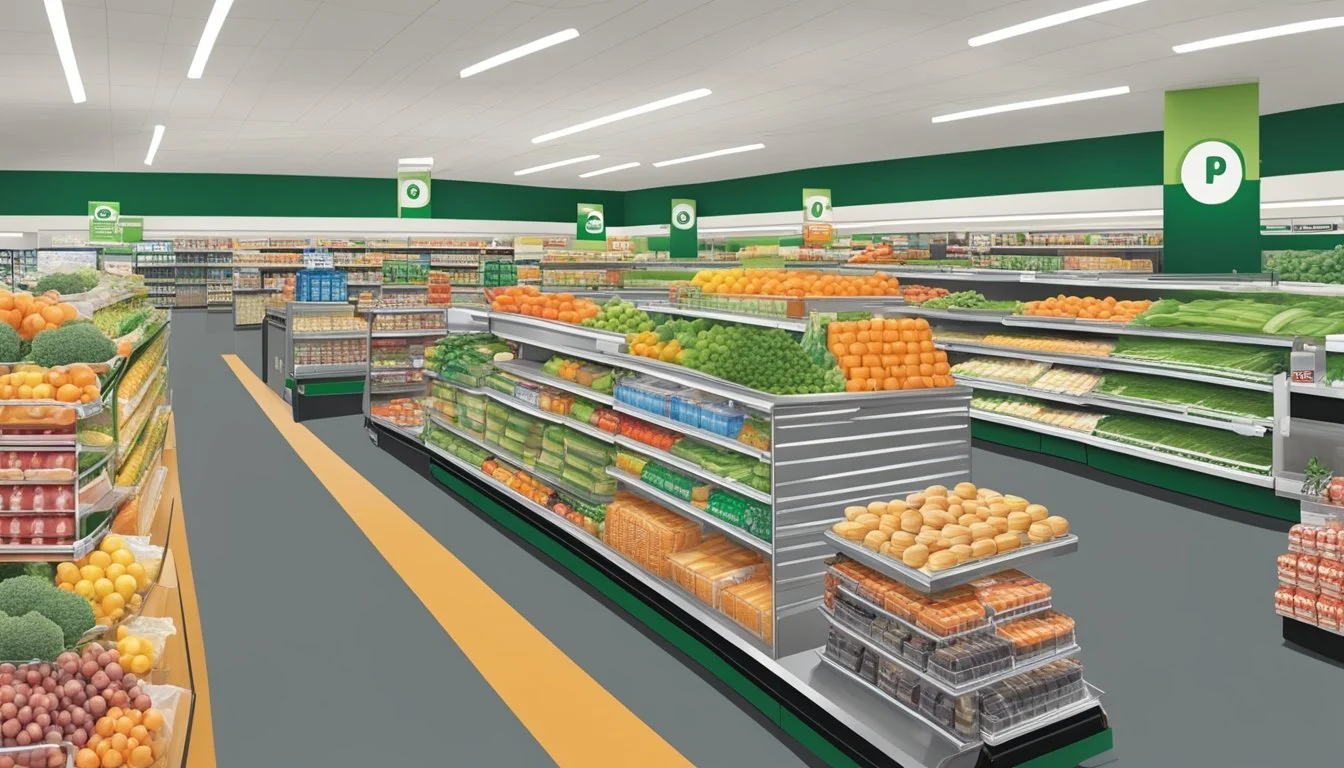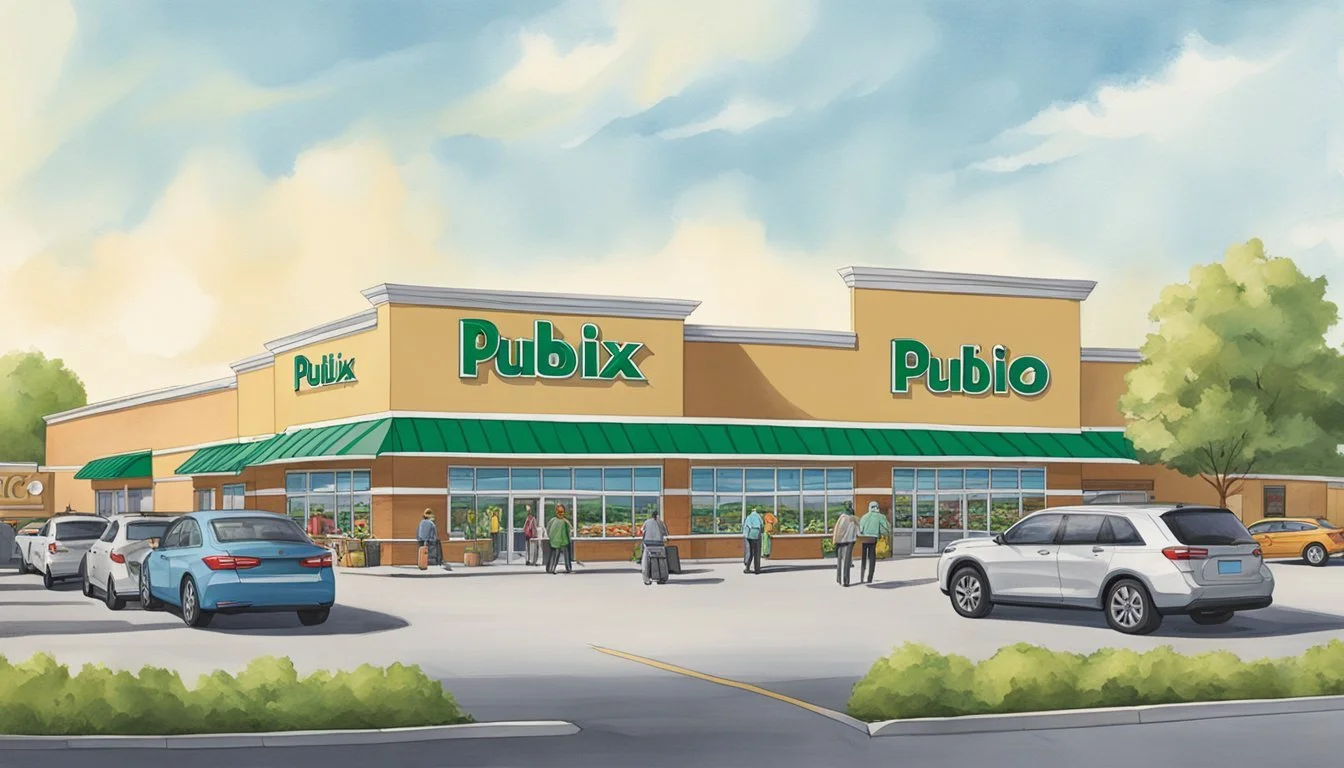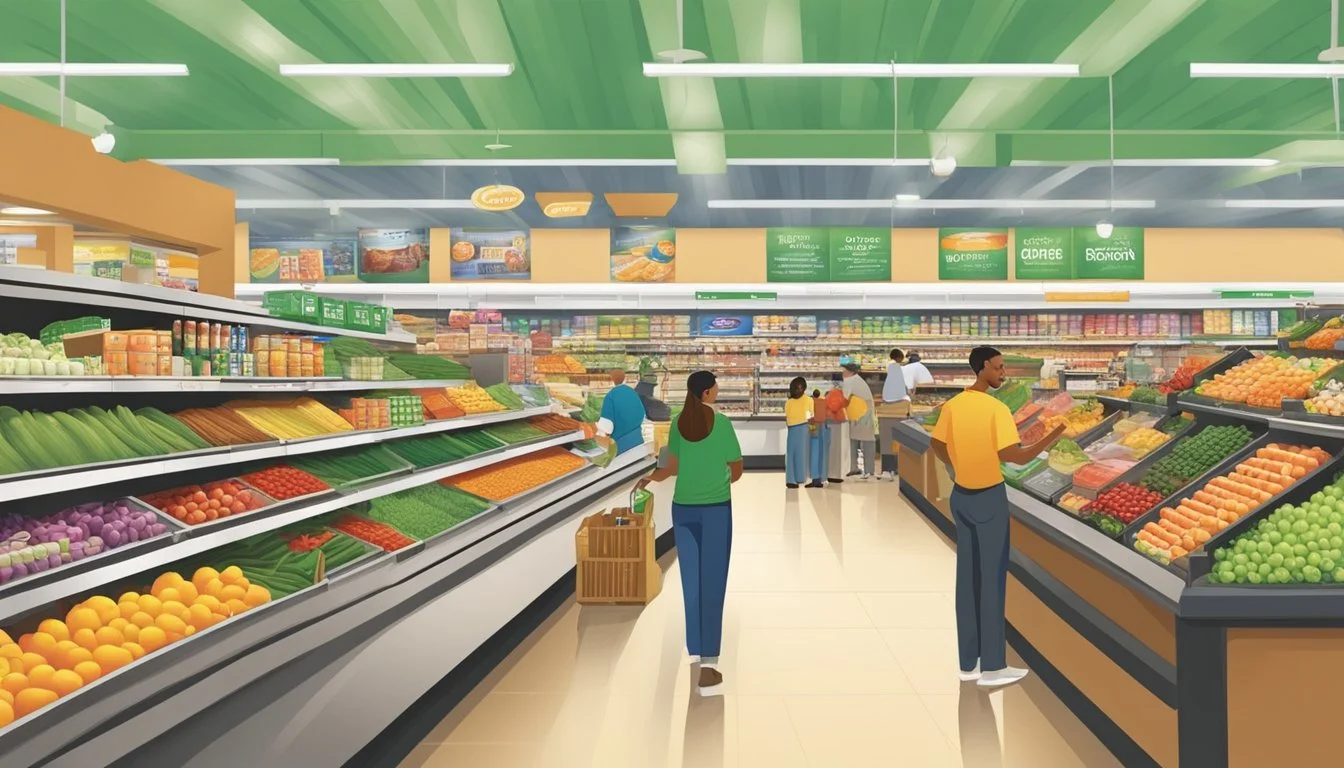Publix vs WinCo Foods
A Comprehensive Comparison of Prices, Quality, and Service
Publix and WinCo Foods represent two distinct approaches to grocery shopping in the United States. Both chains have garnered loyal customer bases, but they cater to different consumer preferences and priorities.
Publix, a southeastern staple, is known for its high-quality products and exceptional customer service. The employee-owned company focuses on creating a pleasant shopping experience with clean stores and helpful staff. WinCo Foods, on the other hand, prioritizes low prices and no-frills shopping, offering a warehouse-style environment where customers can find significant savings on groceries.
The choice between Publix and WinCo Foods ultimately depends on individual needs and values. Shoppers seeking a more upscale experience with a wide selection of prepared foods may prefer Publix, while those prioritizing budget-friendly options and bulk purchases might find WinCo Foods more appealing. Both stores have their strengths, catering to different segments of the grocery market.
Company Backgrounds
Publix and WinCo Foods have distinct histories that shaped their growth into major grocery chains. Both companies started small and expanded over decades to become significant players in the American supermarket industry.
History of Publix
Publix began in 1930 when George W. Jenkins opened his first store in Winter Haven, Florida. The company grew steadily, introducing innovative features like air conditioning and automatic doors. By 1940, Jenkins had expanded to 19 stores and launched Florida's first supermarket.
Publix pioneered employee ownership in 1940, giving workers shares of company stock. This model boosted loyalty and helped fuel rapid expansion. The chain spread across Florida in the 1950s and 1960s.
In the following decades, Publix expanded into other southeastern states. The company is now the largest employee-owned grocery chain in the U.S., with over 1,200 stores in seven states.
History of WinCo Foods
WinCo Foods traces its roots to 1967 when Ralph Ward and Bud Williams opened a discount warehouse grocery store in Boise, Idaho. Originally called Waremart, the company focused on low prices and a no-frills shopping experience.
The chain expanded slowly at first, adding locations in Idaho, Oregon, and Washington. In 1999, the company changed its name to WinCo Foods, an acronym for Winning Company.
WinCo became employee-owned in 1985, giving workers a stake in the company's success. This model helped drive growth and employee satisfaction. The chain now operates over 130 stores across ten western and southwestern states.
WinCo is known for its large stores, bulk food sections, and focus on keeping prices low by cutting operating costs.
Store Locations and Presence
Publix and WinCo Foods have distinct regional footprints in the United States. Publix dominates the Southeast, while WinCo Foods operates across several Western and Midwestern states.
Publix in the Southeastern United States
Publix maintains a strong presence in seven southeastern states. The company operates over 1,300 stores across Florida, Georgia, Alabama, South Carolina, Tennessee, North Carolina, and Virginia.
Florida serves as Publix's home base, hosting the majority of its locations. The chain has steadily expanded northward and westward over the years.
Publix focuses on suburban and urban areas, often anchoring shopping centers and mixed-use developments. The company's expansion strategy targets growing communities and high-traffic locations.
WinCo Foods Across 10 States
WinCo Foods operates in 10 states, primarily in the Western and Midwestern United States. The chain has stores in Washington, Oregon, California, Idaho, Nevada, Arizona, Utah, Oklahoma, Montana, and Texas.
California houses the largest number of WinCo Foods stores. The company has been expanding into new markets, with recent growth in Texas and Oklahoma.
WinCo Foods typically chooses locations in suburban areas and smaller cities. The chain's stores are often larger than average grocery stores, accommodating their bulk-focused business model.
Product Assortment and Availability
Publix and WinCo Foods offer diverse product selections to meet various customer needs. Both stores stock a wide range of groceries, but they differ in their focus areas and brand offerings.
Fresh Produce and Organic Options
Publix is known for its high-quality produce section, featuring a variety of fresh fruits and vegetables. The store emphasizes organic options, with a dedicated area for organic produce. Publix often sources locally when possible, supporting regional farmers.
WinCo Foods also provides a substantial produce department. While their organic selection may be more limited compared to Publix, WinCo offers competitive prices on conventional produce. The store focuses on value, often featuring bulk bins for fruits and vegetables.
Both chains prioritize freshness, but Publix generally receives higher marks for its produce quality and presentation.
Dairy, Meat, and Seafood Selection
Publix boasts an extensive dairy section with a mix of national brands and its own store brand. The meat department offers a variety of cuts and often includes a full-service butcher counter. Publix's seafood selection is typically diverse, with both fresh and frozen options available.
WinCo Foods provides a solid dairy selection, focusing on popular brands and budget-friendly options. Their meat department offers pre-packaged cuts at competitive prices. WinCo's seafood options may be more limited, with an emphasis on frozen products.
Packaged Goods and Store Brands
Publix carries a wide array of national brands across all categories. The chain's private label, Publix Brand, is well-regarded for its quality and spans numerous product lines. Publix also offers premium store brand options under the Greenwise label.
WinCo Foods stocks many national brands but places a stronger emphasis on its own store brand products. These WinCo-branded items are often priced significantly lower than national equivalents. The store's bulk foods section is a standout feature, allowing customers to purchase pantry staples in custom quantities at reduced prices.
Pricing Strategies
Publix and WinCo Foods employ distinct pricing approaches to attract and retain customers. These strategies influence overall costs, bulk purchasing options, and promotional offerings.
Comparison of Overall Prices
WinCo Foods generally offers lower prices compared to Publix. A typical basket of groceries at WinCo can cost 15-20% less than at Publix. WinCo achieves this through a no-frills shopping experience and operating as an employee-owned company.
Publix, while pricier, justifies its costs with higher-quality products and superior customer service. Their pricing reflects a focus on freshness and premium selections.
For budget-conscious shoppers, WinCo's lower prices can result in significant savings over time. However, Publix may offer better value for those prioritizing product quality and shopping experience.
Bulk Buying Options
WinCo Foods excels in bulk purchasing options, similar to warehouse clubs like Costco. They offer an extensive bulk foods section where customers can buy exactly the amount needed.
Items available in bulk at WinCo include:
Grains and cereals
Nuts and dried fruits
Spices and baking ingredients
Candy and snacks
Publix has limited bulk options, focusing more on pre-packaged goods. They occasionally offer larger sizes of popular items, but not to the extent of WinCo's bulk selection.
Bulk buying at WinCo can lead to substantial savings, especially for families or those who consume large quantities of certain products.
Deals and Coupons
Both stores offer deals and accept coupons, but their approaches differ:
Publix:
Weekly BOGOs (Buy One Get One Free) deals
Digital and paper coupons accepted
Publix digital coupons available through their app
Occasional "Extra Savings" flyers with additional discounts
WinCo Foods:
Everyday low prices instead of frequent sales
Manufacturer coupons accepted
No store coupons or loyalty program
Special bulk item discounts
Publix's promotional strategy allows for significant savings when combining sales with coupons. WinCo, however, maintains consistently low prices without the need for extensive coupon use.
Customer Experience
Publix and WinCo Foods offer distinct shopping experiences, each with its own strengths and drawbacks. Their approaches to store ambiance, customer service, and checkout processes differ significantly, impacting overall customer satisfaction.
Store Cleanliness and Ambience
Publix takes pride in maintaining spotless stores with a bright, welcoming atmosphere. Their aisles are well-organized and spacious, creating a pleasant shopping environment. The stores often feature modern decor and clear signage, making navigation easy for customers.
WinCo Foods, on the other hand, focuses on a no-frills approach. While clean, their stores may appear less polished than Publix. WinCo's warehouse-style layout prioritizes efficiency over aesthetics. Aisles are typically wider to accommodate bulk purchases, but the overall ambiance is more utilitarian.
Both chains emphasize cleanliness, but Publix tends to receive higher marks in this area from customer surveys and industry reports.
Customer Service Quality
Publix is renowned for its exceptional customer service. Employees are well-trained, friendly, and readily available to assist shoppers. The company's "where shopping is a pleasure" motto is reflected in their staff's attentiveness and willingness to go above and beyond.
WinCo Foods employs a self-service model to keep costs down. While staff are generally helpful when approached, customers are expected to be more self-reliant during their shopping experience. This approach may appeal to shoppers who prefer minimal interaction.
Publix consistently ranks higher in customer service surveys, often placing near the top of national rankings for grocery chains.
Shopping Convenience and Checkout Process
Publix offers a range of conveniences, including:
Full-service deli counters
Prepared meal options
In-store pharmacies
Online ordering with curbside pickup
Their checkout process is efficient, with well-staffed registers and the option for self-checkout in many locations.
WinCo Foods focuses on bulk purchasing and cost savings. Their unique features include:
24-hour operations in many locations
Extensive bulk foods section
Employee-owned business model
WinCo's checkout process can be slower during peak hours due to their cost-saving measures, which may result in fewer open registers. They typically do not offer self-checkout options.
Both stores aim to provide convenient shopping experiences, but their approaches cater to different customer preferences and priorities.
Brand Reputation and Reviews
Publix and WinCo Foods have distinct reputations in the grocery industry. Customer reviews and market perceptions shape how these chains are viewed by consumers and industry experts alike.
Market Perception of Publix
Publix enjoys a strong reputation for customer service and quality products. The Florida-based chain consistently ranks high in consumer satisfaction surveys. Customers praise Publix for its clean stores, friendly staff, and fresh produce. The company's "Publix Promise" guarantees customer satisfaction, boosting trust.
Publix's private label products are well-regarded for their quality. The bakery and deli departments receive particular acclaim. Many shoppers appreciate the chain's BOGO (Buy One Get One) deals.
Consumer Reports has ranked Publix favorably among supermarkets. The chain's reputation extends beyond its southeastern U.S. base, with many out-of-state visitors seeking out Publix stores during trips to Florida.
Market Perception of WinCo Foods
WinCo Foods has built a reputation as a low-price leader in the grocery industry. The employee-owned company is known for its no-frills approach and bulk food options. Customers appreciate WinCo's focus on keeping prices low.
Reviews often highlight WinCo's competitive pricing and wide selection of products. The bulk foods section is a particular draw for many shoppers. WinCo's 24-hour operations in many locations also receive positive mentions.
While not as widely known as some national chains, WinCo has gained recognition in industry surveys. Consumer Reports has included WinCo in its rankings of top grocery stores. The chain's expansion has increased its visibility in western and midwestern states.
Economic and Environmental Impact
Publix and WinCo Foods have distinct approaches to employment, community engagement, and sustainability. These factors shape their economic and environmental footprints in the areas they serve.
Employment Practices and Community Presence
Publix is known for its employee ownership model. The company offers stock options to eligible workers, fostering a sense of ownership and long-term commitment. This approach has contributed to low turnover rates and high employee satisfaction.
WinCo Foods operates as an employee-owned company. Most of its workforce are shareholders, which can lead to increased job satisfaction and productivity. The company provides competitive wages and benefits, including a 401(k) plan with company contributions.
Both chains prioritize local hiring, boosting employment in their operational areas. Publix has a strong presence in the southeastern United States, while WinCo primarily serves the western region.
Sustainability and Organic Offerings
Publix has implemented various sustainability initiatives. The company focuses on reducing waste through recycling programs and energy-efficient store designs. In 2022, Publix recycled hundreds of millions of pounds of cardboard, plastic, and other materials.
WinCo Foods emphasizes bulk purchasing options, which can reduce packaging waste. This approach allows customers to buy only the quantities they need, potentially decreasing food waste at home.
Both chains have expanded their organic product lines in recent years. Publix offers its GreenWise brand for organic and natural products. WinCo provides a selection of organic items, though its offerings may be more limited compared to Publix.
Publix has made efforts to source products locally when possible, reducing transportation emissions. WinCo's focus on efficiency in its supply chain also contributes to a lower environmental impact.
Conclusion
Publix and WinCo Foods offer distinct shopping experiences for consumers. Publix excels in customer service and product quality, with a focus on fresh produce and prepared foods. WinCo Foods stands out for its low prices and bulk buying options.
Budget-conscious shoppers may find WinCo Foods more appealing due to its competitive pricing. The employee-owned model and no-frills approach contribute to lower overhead costs, which translate to savings for customers.
Publix attracts those who prioritize a more upscale shopping environment and a wider selection of specialty items. Its BOGO deals and weekly sales can provide good value for savvy shoppers.
Location and personal preferences play crucial roles in grocery store choice. WinCo Foods has a smaller geographical footprint, primarily in the western United States. Publix is more widely available in the southeastern states.
Both chains have loyal customer bases. WinCo Foods appeals to those willing to bag their own groceries and forego some amenities in exchange for lower prices. Publix caters to shoppers who appreciate a full-service experience and are willing to pay a bit more for it.
Ultimately, the better choice depends on individual priorities - whether it's price, selection, convenience, or service quality. Many consumers may find value in shopping at both stores, depending on their specific needs for each grocery trip.







